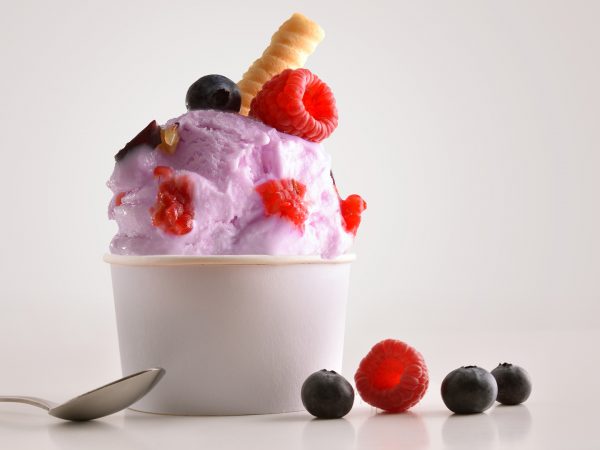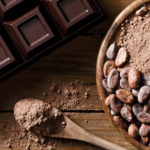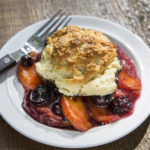The Importance Of Indulging?
On the whole, my diet is well-balanced – it’s low in fats, full of greens, and I hardly eat meat. But I can’t seem to cut out dessert. Our family meals would hardly seem complete without big bowls of chocolate ice cream or cheesecake. What are your food weaknesses and how do you stop yourself from indulging?
Andrew Weil, M.D. | June 6, 2020

Having a rich dessert at the end of a meal is definitely an American tradition, one that many families indulge in every night. Like everybody who loves good food and enjoys eating I have certain weaknesses that I indulge in from time to time. Occasionally, I have pizza, dark chocolate, and rarely, even a Coca-Cola. However, while I don’t believe people should go without dessert, I do think most Americans are guilty of overdoing it. We can’t have just one cookie – we have to eat the whole bag. But if you keep your dessert portions small (that means a small scoop of ice cream, not a small carton) I see no reason why you have to stop this nightly ritual. I decided long ago that my quest for better health is not worth sacrificing the pleasure I get from eating.
Keep in mind that eating too much sugar adds to your total glycemic load which can worsen insulin resistance in some people and contribute to atherosclerosis. Also, eating a wide variety of foods is an important component of a well-balanced diet. Instead of having cheesecake or ice cream all the time, why not have a fresh, sweet piece of fruit? Or how about a slice of the blueberry pie featured in my Recipe section?
Indulgence foods have strong psychological, social, and cultural connotations that are hard to shake. For example, it isn’t easy to persuade Americans to “indulge” in tofu, despite the fact that it is a terrific source of protein and contains heart-healthy oil and other components that may protect against some types of cancer. Some of the resistance is a fear of novel foods, but it is also true that common forms of tofu have a bland taste and squishy texture that most Americans find unappealing. What if tofu were served in the form of a delicious, non-dairy chocolate cream pie? Or if it were substituted for ground meat in a robust, Italian-style pasta sauce? Most Americans tasting these dishes would never suspect they were eating bean curd.
After years of studying the medical literature on nutrition, exploring the cuisines of other cultures, and testing and devising recipes that conform to healthy guidelines, I have learned that healthy food and delicious food are not mutually exclusive. Beyond that, I recognize that in our society – as in other cultures – sharing a meal is an important element of social life. Unless you’re willing to live like a hermit and stick to a rigid diet in the name of health, the way you eat has to enhance your health as well as enable you to enjoy meals when you dine with friends and relatives.
If your daily diet is as pleasurable as it is healthy, making sound eating choices won’t be such a chore. And keep in mind that healthy eating doesn’t exclude delicious treats. For example, high-quality dark chocolate can be considered healthful – it contains protective phytochemicals with antioxidant activity. My favorites are the Belgian and French imports.
Enjoy!
Andrew Weil, M.D.












